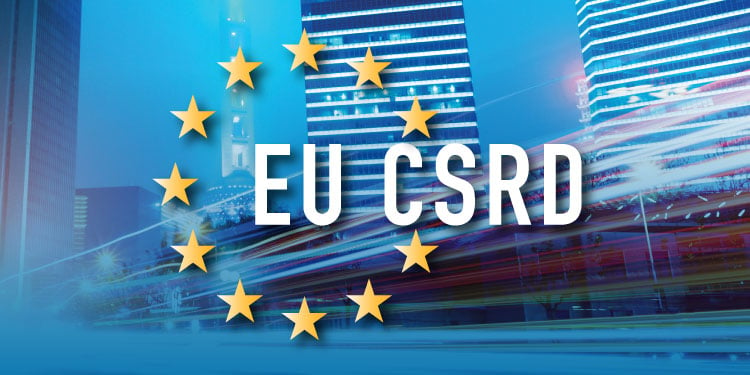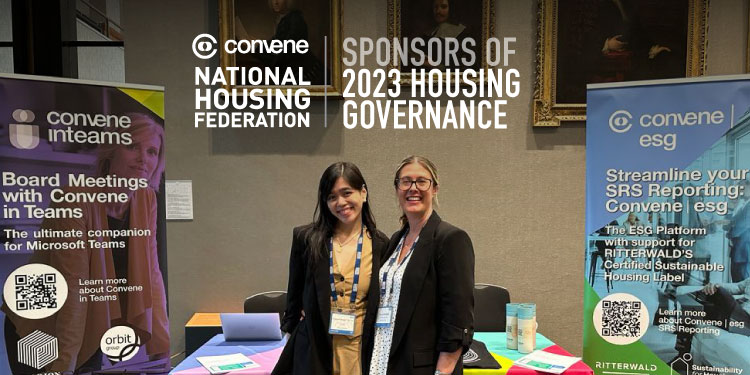The International Sustainability Standards Board (ISSB) standards are set to become effective starting January 1, 2024. These new standards are a significant step forward for sustainability reporting. They will have a major impact on the way companies disclose their ESG (Environmental, Social, Governance) initiatives.
One major challenge that companies face when it comes to ESG reporting is the lack of standardisation.
There is currently a lot of freedom in what companies can disclose, because there is no global standard for reporting. As a result, they have the ability to present reports in a way that benefits them the most. This not only lacks scientific validity but also opens the door to greenwashing.
The ISSB standards are intended to be the foundation for a comprehensive global baseline of sustainability disclosures. They are specifically focused on the needs of investors and the financial markets — something investors have long desired.
So, what do you need to know about this next phase of evolution in ESG reporting?
What is the ISSB?
The International Sustainability Standards Board (ISSB) is an independent, private-sector body that develops and approves IFRS Sustainability Disclosure Standards. The ISSB operates under the oversight of the IFRS Foundation.
Today, economic and investment decisions are increasingly incorporating sustainability information. In response to this, the IFRS Foundation created the ISSB as a sister board to the IASB in 2021. The ISSB provides a global baseline of sustainability disclosures to further inform economic and investment decisions.
There are two sets of proposed standards under the ISSB – sustainability related disclosures and climate disclosures. Both of these are structured around the four pillars outlined by the TCFD: governance, strategy, risk management, metrics and targets.
General sustainability disclosures:
The ISSB extends the framework established by the Task Force on Climate-related Financial Disclosures (TCFD). This means the framework now encompasses non-climate-related sustainability issues. Additionally, these standards outline intentions to disclose all potential risks and opportunities relating to sustainability matters.
Climate disclosure standards:
These standards are primarily focused on climate-related aspects, aligning with the TCFD approach. They tackle important factors including potential risks to the environment, climate resilience, greenhouse gas emissions, and carbon footprint.
The governance and risk management pillars of the ISSB are closely aligned with the TCFD's recommendations. However, this new standard calls for further information and more details on strategy, metrics and targets.
After extensive consultation and feedback since the start of the standards’ development, and with the two proposed standards having been announced, the ISSB will come into force in January 2024 for the subsequent reporting year.
What is the ISSB’s purpose?
Given the number of ESG standards that already exist, it might leave companies wondering what the ISSB is even supposed to achieve.
The ISSB is designed to address this developing disclosure fatigue. By continuing a process of consolidation in sustainability standards, it seeks to create a global standard for ESG reporting.
The ISSB has set out four objectives:
Lottie Wright
Recent posts by Lottie Wright
6 min read
What is the ISSB?
By Lottie Wright on 25/10/23 13:24
Topics: Governance Sustainability ESG Frameworks
7 min read
Housing Insight: Why ESG Reports Matter
By Lottie Wright on 29/09/23 14:28
On the 20th September, Prime Minister Rishi Sunak announced an overhaul of policies intended to help the UK meet its target of cutting carbon emissions to net zero by 2050.
The prime minister said the UK could afford to adopt a more “pragmatic, proportionate and realistic” approach to achieving net zero.
This policy overhaul from the government leaves Housing Associations in limbo. It is unclear how the Sector should move forward with sustainability and decarbonisation plans.
This means it is more important than ever for Housing to be on top of their ESG reports, as it provides something to rely on in the face of uncertainty.
But what exactly did the Prime Minister’s announcement say, and what does this mean for Housing Associations moving forward?
What did Rishi Sunak’s announcement say?
The Prime Minister announced that targets to get households to switch away from fossil fuel boilers were being relaxed. Alongside this, he announced plans for tougher energy efficiency rules for landlords were being ditched. He also declared the ban on the sales of new petrol and diesel cars was being pushed back, from 2030 to 2035.
Three years ago the government set out its “preferred policy scenario” of all private landlords achieving Energy Performance Certificate rating C. For new tenancies this was from 2025, and for existing tenants it was by 2028.
Tenant bodies are outraged by the abandonment of this policy, amid concerns that the much-awaited Renters Reform Bill might face a similar fate.
Sunak claimed he would still “encourage” households to improve their energy efficiency, but that “under current plans, some property owners would have been forced to make expensive upgrades in just two years’ time”.
Additionally, the Prime Minister declared a 50% increase in financial support for grants under the government's boiler upgrade scheme. He said he does not want to impose costs on “hard-pressed families” at a time “when technology is often still expensive”.
While this might sound appealing, the 2035 deadline for putting in new boilers remains unchanged. The only new policy being the promise of an exemption for those who would find the switch to heat pumps the “hardest”.
The Prime Minister said this overhaul “doesn’t mean” he is “any less committed to decarbonising our homes”.
A significant portion of these changes will affect the Housing industry in one way or another. This Sector was already making progress towards the country's net zero goals by enhancing the energy efficiency of many homes, as well as starting to report on ESG through the SRS.
The changes leave many Housing Associations uncertain on how to proceed, as the details of what this means for the Sector has not been made clear by the government.
What is the response from the Housing Sector?
The potential impact of these changes for Housing Associations cannot be ignored. Many in the industry have already come out to share their thoughts on the upcoming changes and what they could mean for the Sector.
Kate Henderson, chief executive of the National Housing Federation, said it is “hugely disappointing” to see the government “row back from its commitments to net zero, particularly on improving the energy efficiency of our homes”.
She stated: “England’s homes are among the oldest and draughtiest in Europe. Making homes more energy efficient is a win-win, not only helping to save our planet, but also boosting our economy by creating jobs and, crucially, saving money.”
Rachelle Earwaker, senior economist at the Joseph Rowntree Foundation, said easing the regulations on energy-efficient homes is “ill advised and ill considered”.
She added: “If we don’t invest in energy-efficient housing and more sustainable and affordable energy solutions, the only certainty is frighteningly high energy bills and poor health outcomes.”
Dan Wilson Craw, deputy chief executive of Generation Rent, said scrapping higher standards for rental properties is a “colossal error” by the government, and that “energy efficiency” is an “essential part of a home’s quality”.
He stated that abandoning these policies is “both cruel and out of proportion to what the prime minister wants to achieve.”
What does this mean for Housing Associations?
Overall, this presents a huge problem for the Sector, which was already challenged with the enormous responsibility of reducing carbon emissions. Now, the industry is confronted with even more uncertainty regarding the government's objectives.
There are also significantly diminished prospects of securing the necessary funding to aid in decarbonisation.
Rishi Sunak and the government have promised a “pragmatic” transition in which the public continues to rely on gas boilers, ignore the issue of energy inefficient housing, delay the serious adoption of electric vehicles until 2035, and somehow, miraculously, achieve the significant reductions in carbon dioxide emissions necessary to achieve net zero.
The lack of clarity on how to move forward with sustainability plans, and how to give tenants the best quality service possible in spite of government policy, means a challenging road ahead.
All this highlights is that it is more important than ever for Housing Associations to communicate with their tenants, and assure them that their needs are your top priority.
The Sector needs to be able to ensure their environmental efforts are being demonstrated, and the public is made aware of them. Whether this be in energy efficiency and ESG goals or beyond, communication between Housing providers and tenants is crucial.
Additionally, with the possibility of more funding from the government appearing more and more unlikely, financing for Housing Associations is going to become more and more competitive.
With investors and consumers alike focusing on sustainability and ESG, reporting effectively and clearly, and showing your environmental progress is going to be critical in the face of these changes.
The earlier you start reporting, the more secure you can be in the face of instability within the Sector.
Why ESG Reports are more important than ever?
As well as achieving its target of net zero emissions by 2050, the UK government has to meet interim “budgets” along the way. Ministers have yet to flesh out important details of Sunak’s policy changes — such as exactly which households might be exempt from having to ditch fossil fuel boilers — so the impact on emissions is hard to calculate at this stage.
Moving forward, the Sector should continue to strive towards sustainability, and this means focusing on what you can do; ESG reporting, and the SRS.
Publishing an ESG report sets out your clear intentions for your organisation’s future, and its future projects. It includes your current investments and future investments into ESG. This will allow your potential investors to have a complete idea of how their money will be spent.
These announcements may make it seem like ESG should be less of a concern for the Housing Sector. The targets proposed by the government are unclear, and the elections next year may mean that it will all change yet again anyway! However, the Housing Sector has always pushed to be ahead of the curve, when government regulations are lacking, it is up to Housing Associations to provide the best service possible for their tenants.
Furthermore, investors, banks and loan providers will still be focused on providing green loans and ESG funding to Housing Associations. However, access to this money will be increasingly competitive without potential government assistance. The sooner you start reporting the more evidence you will have to provide investors of your year-by-year progress.
The SRS will also soon be launching their Version 2.0. which will address some of the common concerns that investors have. This will also help push the Sector forwards. During these uncertain times it is better to be ambitious than “realistic”, especially with the upcoming changes to the SRS allowing for a “comply or explain” approach.
The SRS helps level the playing field for all Housing Associations in terms of ESG by giving a criteria for them to focus on. Organising a standard allows the whole Sector to come together to determine what matters to them around the E, the S and the G in ESG.
The Housing Sector is one of the nations’ biggest polluters; if Net Zero is to ever be achieved then it is necessary to act sooner rather than later.
How Convene can help you with ESG Reporting
Here at Convene we have developed our own ESG reporting tool: Convene ESG.
Convene ESG is designed for Housing Associations with the assistance of Housing Associations. Our Early Adopters discussed with us what they needed, and with their requirements we developed a tool that would help Housing Associations generate the best ESG reports possible.
With Convene ESG you can compare benchmarks, organise your report, assign sections, automate reminders and input your ESG data and the solution will create a report ready to publish or edit as necessary. You can also input the data once and report against multiple different frameworks. This means you can provide lenders and your tenants with both a TCFD, RITTERWALD and SRS Report without repeating the work every time!
With the SRS Version 2.0 coming out this week, it’s as good a time as any to start ESG reporting.
This updated version has been produced using feedback from Adopters, Endorsers, and supporters of the Standard, and should help your association even further on your ESG journey.
You can find more about how Convene ESG can help your Housing Association here, or you can keep up with our dedicated events including networking opportunities and webinars here.
Topics: Sustainability ESG SRS for Social Housing Housing
4 min read
What are the current ESG Regulations in the UK?
By Lottie Wright on 27/09/23 16:02
In recent years, a growing number of ESG (environmental, social, and governance) regulations have been passed around the globe.
More and more companies are being asked by investors to disclose their data, and more regulations are coming in full force. For institutions in the UK, it seems as if mandatory disclosures are just around the corner.
It is important to understand how regulations could affect your business, and to be prepared to start collecting, analysing and reporting on your ESG practices.
What are ESG Regulations?
ESG regulations are a set of requirements placed on an organisation to publicly disclose information about their ESG performance.
Although environmental, social, and governance (ESG) concerns have recently become a focus, the regulation surrounding these matters is even more current. Adhering to ever-changing regulations poses a difficulty, particularly for organisations in the early stages of developing their ESG reporting initiatives.
ESG regulations vary by country, and staying informed, as well as compliant, of these differences is crucial for companies doing business abroad.
The repercussions of non-compliance can be staggering. This can include large fines, a loss of public trust through poor publicity and, ultimately, an impact on revenue. It’s time to start understanding how ESG regulations might affect your organisation.
What are the current UK regulations?
At present, the UK has no single ESG law or regulation. The UK’s ESG policy consists of domestic and EU-derived laws and regulations, many of which are not ESG-focused.
However, one key regulation for ESG disclosures in the UK that does exist is the Companies Act. It includes requirements for annual reporting, and this applies to larger companies that are listed, have more than 500 employees or exceed £500 million in annual turnover.
Non-financial information has always been a requirement of these reports but the Act was extended in 2022 to include sustainability details. Large UK companies are now required to report on energy usage and carbon emissions as part of their annual reports.
Some sectors and organisations of a certain size now have standards they may have to report against. For example, the Housing sector has the Sustainability Reporting Standard, which whilst currently optional is paving the way for industries to specialise and standardise their ESG Reports.
Additionally, starting in 2023, ESG reporting in the UK will be further defined through Sustainability Disclosure Requirements (SDRs). The SDRs offer a framework for companies to handle sustainability opportunities, potential risks, and effects, while also establishing measurable goals and objectives.
While the SDRs are rolled out over the next two years, fully mandatory disclosure is expected by 2025.
For financial years starting after 6 April 2022, TCFD based reporting will be mandated for more than 1,300 of the largest UK-registered companies and financial institutions.
This encompasses numerous major publicly traded corporations, financial institutions, and insurance companies in the UK. Additionally, sizeable private companies are also subject to the new regulations.
New legislation affects not just large companies and institutions in the UK, but also the businesses that are in their supply chains. This emphasises the need to start reporting on ESG matters, regardless of whether you are directly impacted or not.
What are the future ESG Regulations?
Other developments in ESG reporting expected over the coming year include a mandatory requirement for certain companies to publish "net zero transition plans". These should outline how they will adapt as the UK moves towards a low carbon economy by 2050.
It is also worth noting that European corporate sustainability reporting requirements may well impact non-EU companies in the future. If they have significant EU activity or fall within the value chain of an in-scope EU company, they could be affected.
The new CSRD requirements mandate that both private and public EU companies provide detailed information on sustainability-related issues. This also applies to any non-EU companies with a substantial presence in Europe.
The International Sustainability Standards Board (ISSB) released its exposure drafts on 31 March 2022 with comments to be received by 29 July 2022. The proposed guidelines establish the criteria for disclosing information on climate and overall ESG reporting. They are likely to be implemented into UK legislation by 2024 or 2025.
While ESG reporting requirements are rapidly expanding, these regulations mostly build on existing reporting frameworks, such as the TCFD.
Although not all companies are subject to these regulations, there is a growing demand from investors for reporting. Therefore, businesses can anticipate this evolving scenario by embracing the best practices of ESG reporting without delay.
How Convene Can Help With Your ESG Reporting
Here at Convene we have developed our own ESG reporting tool: Convene ESG.
Our aim is to alleviate some of the challenges of ESG data gathering, performance tracking, and reporting for ESG factors so organisations can move towards global sustainability and net zero.
Designed in collaboration with our clients, Convene makes reporting simple, so you can focus on developing sustainable strategies.
Convene ESG can help you report on a range of existing standards including the TCFD, GRI, SRS, amongst a range of others.
It also has a built-in comparison feature, which allows you to compare against competitors' formatting of their publicly accessible reports. This will help your organisation develop the best results possible.
It's important to understand the ESG landscape and its regulations, even before these regulations are mandatory, so you can be prepared to face ESG disclosures head on. It helps not only your organisation, but the planet, to focus on how you can improve ESG practices.
Topics: Governance Sustainability ESG Frameworks
5 min read
What is Net Zero, and how does ESG factor in?
By Lottie Wright on 27/09/23 16:00
As climate change becomes a more and more pressing issue, the phrase 'Net Zero' comes up increasingly often. In 2019, the UK Government committed to achieving this target by 2050.
Net Zero means there is an equal balance of carbon going in and out of the atmosphere. Many institutions globally have come to view this as the standard for measuring their commitment to climate goals.
Sustainability has become not just an important plan, but a vital goal and mission for organisations. With ESG initiatives driving changes, the concept of carbon neutrality and net zero is becoming more of a reality.
What Does Net Zero Mean?
Net Zero means the balance of carbon going in and out of the atmosphere. It also refers to the global target of negating the amount of greenhouse gases created by human activity.
Net Zero can be achieved through reducing emissions and absorbing existing carbon dioxide out of the atmosphere, but this is no small feat.
Net Zero doesn't mean an organisation is not releasing any carbon into the atmosphere. It only means that the carbon they emit is balanced by the carbon they take out of the atmosphere. As a result, Net Zero strategies involve measures that reduce this carbon such as planting trees or reducing carbon footprint.
Global warming and climate change will have an impact across every industry. Reducing the amount of damage done to the environment is not only an ethical issue, but a practical one.
Committing to Net Zero is one of the most significant steps an organisation can take in protecting themselves in the future.
How Does ESG Contribute To Net Zero?
ESG, or Environmental, Social and Governance, is a metric used to evaluate organisations on their sustainability efforts. It is becoming an increasingly important aspect of business to investors, as concerns about climate change rise.
Environmental, the E in ESG, refers to the impact an organisation makes on climate change through its greenhouse gas emissions, waste management and energy efficiency.
Social, the S in ESG, refers to human rights, labour standards and issues such as workplace safety and security.
Governance, the G in ESG, refers to the system used to define rights, expectations, and responsibilities between different stakeholders, as well as the rules and policies in place to ensure this standard of behaviour.
With sustainability surfacing as a global objective, many investors are demanding ESG plans that outline a path to meeting net-zero carbon emission targets. ESG plans and policies help to navigate a way to net zero. They set crucial targets and hold institutions to sustainability standards.
What Can Your Organisation Do To Help Achieve Net Zero?
Reducing the dependency and use of fossil fuels can help organisations achieve those important ESG goals like Net Zero. Still, it can be more complex than simply switching to renewable energy.
No matter the challenge, reaching Net Zero emissions goals comes down to gathering and understanding the data.
In order to reach Net Zero, it is crucial for organisations to monitor and evaluate all carbon-emitting assets. Without this data, it is impossible to efficiently control energy usage and environmental footprint.
This is where ESG comes in as a helpful solution. ESG reports are designed to provide your organisation with the information and data about its environmental impact. This can then help you come up with the right strategy and plan to reach your net zero goals.
Topics: Sustainability ESG
4 min read
Convene at the NHS Governance 'The Future' Conference
By Lottie Wright on 21/09/23 15:27
On the 19th September 2023, Convene was an exhibitor at the NHS Governance ‘The Future’ Conference. We’d like to thank all those in attendance for making it such an informative discussion on the world of governance within the NHS.
Topics: Governance
5 min read
Convene ESG at Sustainability Reporting Europe 2023
By Lottie Wright on 13/09/23 17:35
On the 6th and 7th September, Convene ESG exhibited at Reuter’s 2023 Sustainability Reporting Europe Conference. We’d like to thank Reuters IMPACT Congress London, as well as all speakers, sponsors and attendees for participating in such an important and enlightening conference.
The conference focused on the upcoming CSRD regulations, and how organisations can be prepared to tackle it, and ‘collect, manage and disclose data fit for the CSRD’. It highlighted that many companies are not on track to comply with the CSRD, and emphasised that businesses should prepare themselves for compliance quickly, to avoid the risks of negative publicity and financial penalties.
The conference set out to help companies understand how to utilise systems, processes and frameworks to provide consistent and reliable data. It also sought to explore how sustainability can work together with finance, risk, communication, and legal teams, and how companies can meet regulatory requirements without losing focus as to why reports are necessary.
The varied talks and discussions took place on four main stages, each focusing on important aspects of ESG regulations, including a Sustainability Reporting stage, a Reuters Impact stage, an ESG Investment stage, and a Net Zero stage.
On the first day of the conference, there were several keynote events including a talk on the CSRD’s compatibility with both the GRI and ISSB from policy makers, exploring how to navigate the regulatory changes for 2023 and beyond. There were also keynotes on using business strategy with sustainability data, and on how to collect consistent, comparable and quality data.
There was a keynote talk about how finance drives sustainable business practices, and the importance of sustainability executives working with their financial counterparts. This was a repeated theme throughout the conference; the need for integration between finance and sustainability.
There were panels on identifying the gaps in your current reporting practices, as well as setting up an effective sustainability reporting program. There were also panels furthering the conversation of sustainability and finance working together, and supplying additional information about how to structure annual reports.
An interesting and important workshop on the GRI and the practical ways that companies can prepare for the CSRD and leverage GRI reporting.
Additionally there were presentations on operationalising sustainability and driving performance beyond just regulatory compliance. Presentations also looked at increasing transparency through digitable access to data, as a company's information should not just hold them accountable but also be accessible.
The day ended with a workshop focusing on the future of the industry, looking to discuss the sessions of the day as well as how companies need to be adaptable in the face of instability and possible crises.



Topics: Sustainability ESG
6 min read
Che cosa è la CSRD?
By Lottie Wright on 23/08/23 14:41
Nei prossimi anni l'UE introdurrà una legislazione più rigorosa in materia di ESG, sia per le grandi aziende che per le PMI, che dovranno presentare relazioni. È fondamentale che la vostra organizzazione anticipi queste normative e riduca l'impatto negativo implementando strategie di monitoraggio, raccolta dati e reporting accurate. Porre l'ESG in cima alla vostra agenda vi offre un vantaggio rispetto alle aziende che non hanno ancora alcun obbligo di rendicontazione quando si tratta di conformarsi ai quadri normativi esistenti e a quelli nuovi, nonché di attrarre finanziamenti sostenibili e di compiacere gli stakeholder.
La Corporate Sustainability Reporting Directive (CSRD) è la nuova normativa dell'UE che impone alle aziende di pubblicare regolarmente rapporti sulle loro attività ESG. È stata concepita per incoraggiare le aziende a sviluppare approcci più responsabili al business e per aiutare gli stakeholder a valutare le loro prestazioni non finanziarie. Per la prima volta, la Commissione europea definisce un quadro di rendicontazione unificato per i dati non finanziari.
Topics: Sustainability ESG Frameworks
6 min read
What is the CSRD?
By Lottie Wright on 10/08/23 10:11
The EU is set to introduce more rigorous legislation on ESG over the coming years, for both large companies and SMEs to report against. It’s crucial for your organisation to anticipate these regulations, and reduce any negative impact by implementing thorough monitoring, data collection and reporting strategies. Putting ESG at the top of your agenda provides you with an advantage over companies that have no reporting obligation yet when it comes to complying with existing and new frameworks as well as attracting sustainable finance and pleasing stakeholders.
The Corporate Sustainability Reporting Directive (CSRD) is the new EU legislation requiring companies to release regular reports on their ESG efforts. It is designed to encourage companies to develop more responsible approaches to business, and helps stakeholders evaluate their non-financial performance. For the first time, the European Commission is defining a unified reporting framework for non-financial data.
Topics: Sustainability ESG Frameworks
5 min read
Why Listed Companies Choose Convene
By Lottie Wright on 17/07/23 14:52
For many listed companies, investing in technology and software that promises security, reliability and streamlined communication is crucial in ensuring good governance and transparency with the public.
Listed companies are public companies, which means they must issue shares of its stock through an exchange, and adhere to the exchanges standards of corporate governance.
At Convene, our Board portal is designed to aid in achieving these good governance practices, and enables any publicly listed organisation to ensure their organisation has secure and seamless communication.
Here’s why listed companies choose Convene.
Streamlines Business Meetings
Listed companies do not always have time to waste on admin tasks that can be simplified by software. Convene is designed to improve your meeting process from start to finish and create more dynamic meetings.
The complex issues handled by companies during Board meetings mean that directors don’t need the added complication of confusing software.
The advantages of Convene’s software were noted by Chris Spanias, Solution Architect at Tesco Bank. In his words: ‘Convene has saved our admins time and increased efficiency when it comes to organising meetings.’
From the intuitive Agenda Builder to our auto-generated meeting minutes feature, Convene can simplify meeting administration. This means your team can reduce the time they spend on repetitive tasks and focus their attention on the important aspects of your meetings.
Convene is designed to streamline communication in your business meetings, increasing efficiency in meetings and ensuring collaboration is as easy as possible, especially when remote.
In an age increasingly regulated by remote interactions, it is essential your software is purpose-built for corporate governance.
As Afonso Cardoso de Menezes, Company Secretary of Bison Bank observed: ‘Convene facilitates and encourages vital international collaboration which is critical for success.’
Afonso crucially noted that: ‘Information is now accessible to Board members internationally in an instant.’ Fluent communication is at the heart of running a company, and our software streamlines this exchange.
Security And Data Protection
On top of all of this, Convene’s state-of-the-art security is designed to respond to evolving cybersecurity threats. With Convene, listed companies can get the best protection for their confidential data.
In the words of Chris Spanias, ‘Convene has the necessary security compliance standards and that was a prerequisite for us’.
With AES 256-bit encryption and CMMI Level 5 accreditation, publicly listed companies can feel confident their data is protected by Convene. The fully GDPR-compliant system offers 24/7 protection and support for all your security needs.
At Convene, we understand how important it is for companies to trust the software they use. Convene’s data protection makes a quantifiable improvement to Board meeting security.
Balances Cost And Functionality
With so many useful features, you might expect our Board portal to mean budgetary sacrifices. In fact, Convene provides a premium service for a reasonable price, and doesn’t sacrifice functionality in the process.
The features are also more than worth it in the long term. As Chris Spanias noted: ‘Once they switched over to Convene, our Board stopped using paper. [Our] study found that we save so much money on printing and paper alone that Convene has almost paid for itself every year’.
Ease Of Use And Reliability
Convene’s intuitive features make the software one of the most accessible solutions available. The interface is so easy-to-use that even the most technophobic Board members feel comfortable.
In the words of Christina Giannopoulou, the user-friendly nature of Convene was one of the main draws for Piraeus Bank. She told us that: ‘It was important for our members to be able to access information easily and to share important documents during meetings. We really liked the user interface of the Convene application, and we found it very user-friendly.’
At Convene, we are dedicated to providing easy-to-use and reliable Board portal software, so your company can upgrade your meetings without worrying about accessibility for your Board members. Convene offers unlimited training, so even those who are less 'tech-savvy' are supported during implementation.
Enhance Your Governance With Convene: Smart, Simple, Secure
Convene is an award-winning Board Portal designed to digitise and streamline your meeting processes from start-to-finish.
Now available fully integrated with Microsoft Teams, our comprehensive software has numerous features to support your listed company and its public operations:
Topics: Governance Board Portal Features Business Insights Why Convene?
7 min read
5 Must Have Features for Government Committee Meetings
By Lottie Wright on 13/07/23 16:18
For governments, and their important meetings, a Board portal is a crucial piece of software to help streamline operations. Effective meeting management systems allow public sector organisations to run more efficiently, simplify more complex tasks and boost their transparency.
With many different Board portals on the market, it's important to establish what features will be most beneficial for your meetings.
There are many features you should consider when looking for a new Board portal for governments. We’ve collated the five most critical ones for your organisation to consider.
But first, what even is a Board portal?
What is a Board Portal?
A Board portal is a solution for running seamless meetings in the digital age.
Board management software utilises communication and collaboration tools to help simplify Board material preparation, reports, and many other meeting-related tasks.
Board portals also facilitate a secured environment for sharing confidential documents and information.
Board meeting software collapses the entire meeting process, aiming to elevate transparency, practise corporate compliance, and increase efficiency. It removes the need for tasks like printing documents, sending emails manually, and physically compiling annotations.
At Convene, our Award Winning Board portal is designed to help governments to run effectively and efficiently. Convene is here to assist in establishing good governance and communication in your committee meetings.
Features of a Board Portal
If you want to effectively manage different aspects of government, it is important to invest in the appropriate tools. Here are essential Board portal features that will assist you in achieving your objectives effortlessly.
1. Agenda Builder
This feature enables your team to be on the same page before, during, and after committee meetings.
An Agenda Builder allows you to drag and drop documents into the agenda and update Board packs instantly. This way you can find all the information needed for meetings at once.
Once the agenda has been created, meeting organisers can also choose which participants can access the agenda files. This helps to increase security and confidentiality.
Organisers can assign action items when creating the agenda. When adding the action, they can assign the designated person/s for the task and set the deadline.
With a feature like an Agenda Builder, your committee meetings can have a clear plan and schedule. This means that your meeting process is even more streamlined.
2. Annotations
Running remote meetings requires the ability to collaborate seamlessly with a range of annotation tools. Attendees should be able to make notes, highlight sections or draw on the Board papers.
Annotation tools should be easy to use for all participants. This not only aids the communication process, but also allows all in attendance to record their ideas within the Board portal.
Moreover, annotations offer an additional layer of accountability for your participants. Once a Board pack is annotated, you have a digital trail which helps track what was happening in particular meetings.
Annotations made on paper can simply get lost - especially when meetings are remote. This makes them a crucial Board portal feature for both accountability and productivity.
3. In-meeting Voting
Physical meetings often require travelling, accommodation costs, and significant amounts of time. For this reason, Board portals must be able to facilitate the decision making process.
A quality Board portal should allow you to create a survey which can be voted on during or prior to the meeting. The voting system should be a secret ballot, or a show of hands. This improves accountability as well as speeding up the decision making process.
Convene allows participants to vote anonymously as well as remotely, meaning that if a member cannot attend the meeting they can still participate.
4. Document Library
For any organisation, there will be a never ending amount of documents that might be needed in a committee meeting. With a Document Library, all meeting packs, Board documents, and meeting minutes are kept securely in the same place.
This helps keep your remote meeting on track and running seamlessly, while also improving accountability and transparency. With everything stored in one place, Board members can see all the documents they might need.
Convene has an inbuilt retention schedule if you need to ensure your records are compliant with specific corporate records management standards, further establishing your data security. Convene’s document library is protected by 256-AES bit encryption, which is the safest technology available.
Our Board portal also allows administrators to manage access rights during the meeting. This means attendees can only look at specific documents if they have the correct security clearance..
This is why a secure and efficient Document Library is another important feature of any Board portal.
5. Audit Trail
Automated Audit Trails are another way a Board portal promotes a culture of transparency and accountability within your committee meetings.
Audit trails make sure nothing goes unnoticed or forgotten, as every action is monitored and tracked. Tracking the actions of users means they cannot misuse any data or sensitive information, as they know that any breach or misuse can be traced back to them.
With a Board portal, audit trails are now easily automated and stored digitally. This saves admin time and allows for more storage of old audits, as well as enhancing security and transparency.
With Convene, administrators have access to an audit trail log, which keeps a record of user actions, such as login, creation, modification, exporting, or deletion, as well as the date and time at which these transactions occurred. Convene allows users to export the records from the system as a PDF report. Records that can be exported include meetings, review and approvals, and resolutions.
Audit trails are a critical way to ensure safety and transparency for your government, and having an automated system within a Board portal enables this security.
Enhance Your Board Portal Governance with Convene
Board portal software should simplify your meetings, not complicate them. Join hundreds of organisations around the world in embracing a smart, simple and secure future with Convene.
Every step of your meeting process should be as smooth as possible; with the right software that has the right features, the complex task of governance can be much easier.
Convene Board portal features include:
Topics: Security Governance Board Portal Features
4 min read
Convene sponsors the CGI Governance Conference 2023
By Lottie Wright on 07/07/23 14:19
On the 5th and 6th July, Convene sponsored the CGI Governance Conference 2023. We’d like to thank the Chartered Governance Institute UK & Ireland for putting on an insightful conference, and all those who attended for making it such a memorable event.
The conference gives attendees a chance to enhance their knowledge and insight into the world of leading governance professionals, through a series of speeches, talks, panel discussions and interactive workshops from a varied range of perspectives.
In recent years, the world has been increasingly unstable and the future far more uncertain, and so this year’s conference explored topical discussions about what the future of the working world might look like, the importance of equality, diversity and inclusion at all levels and the “crucial role that governance professionals play within these areas”.
On the first day of the conference, panel discussions revolved around proposed Government & FRC changes and how this will affect organisations, and the importance of equality, diversity and inclusion and how to maintain these ideals throughout an organisation.
Topics: Governance Convene in Teams ESG
5 min read
Convene sponsors the 2023 Housing Conference
By Lottie Wright on 30/06/23 09:42
Over the 27th, 28th and 29th June 2023, Convene sponsored the Unlock Net Zero stage at the Housing 2023 conference, Europe's largest housing festival and annual conference. We’d like to thank the Chartered Institute of Housing for setting up an incredibly engaging and collaborative event, as well as all our fellow attendees for making it such a memorable conference.
The conference provided us the chance to learn about, engage with and keep ahead of industry trends, as well as the opportunity to collaborate and converse with many people within the sector.
This year the conference looked to explore governance, risk, tenant voice, changing and resetting business plans, the importance of social care, health and housing integration, professionalism, reputation, the cost of living crisis amongst many other topics over the three days.
Topics: ESG SRS for Social Housing Housing
6 min read
What Are ESG Risks?
By Lottie Wright on 27/06/23 14:49
As Environmental, Social and Governance (ESG) investing grows, consumers and investors alike look to engage with more sustainable businesses. With sustainability plans and strategies becoming a key part of an organisation’s future goals, it is important that Boards of directors be on the lookout for ESG risks.
ESG risks may vary in their components, but they share a common factor: they greatly affect a company’s profitability and sustainability in the long run.
Topics: Governance Sustainability ESG Business Insights
3 min read
Convene Sponsors the NHF Housing Governance 2023
By Lottie Wright on 22/06/23 18:10
On the 22nd June 2023, Convene ESG exhibited at the Housing Governance Conference at the Royal College of Physicians, organised by the National Housing Federation. We want to thank all of the speakers and attendees for their engagement both online and in person, as well as the NHF for putting on a fantastic conference.
The conference is the sector’s only event specifically for Governance Teams and Company Secretaries to learn the latest legal, policy and regulatory updates and analyse their impacts.
The focus was on improving governance skills and performance, allowing delegates a space to reflect on how their organisation responds to crisis, and what skills and knowledge is needed to better prepare for the future.
The main goal of the conference was to establish what good governance looks like, at a time when the social housing sector is under enormous pressure. With governance teams finding themselves pulled in many different directions, Boards need to know they are meeting the requirements of the regulator, and of residents.
The topics that were discussed in the conference looked to emphasise the importance of flexibility and adaptation within the housing sector. There were several important talks throughout the day, including discussions on the use of data, resident voices, culture, Board succession, facilitating EDI conversations and more.
Topics: Governance Sustainability ESG Housing
5 min read
Why Housing Associations Should Care About Greenwashing
By Lottie Wright on 20/06/23 14:10
With ESG regulations on the horizon for many industries and sectors in the UK, and investors and consumers alike requiring organisations to have good ESG practices, it is important to understand how these efforts can be undermined.
The ‘E’ in ESG is particularly under fire, as an increase in greenwashing activity in recent years means that environmental efforts are being falsified. This makes it even harder to know exactly what sustainable improvements are being made, and who to hold accountable for this.
Housing Associations should care about greenwashing practices because environmental efforts being undermined can be damaging to the sector, its markets and the economy, as well as the planet.
However, before we dive into why you should take notice of greenwashing, let us first explore what greenwashing is and what it can look like.
What Is Greenwashing?
Greenwashing is the attempt to make a product, practice or even an entire organisation appear more environmentally friendly, ‘green’, and sustainable than it really is.
The lines between genuine reporting on ESG efforts and greenwashing can be a little blurred, due to the evolving nature of the ESG landscape and its regulations, so it’s crucial to understand what actually constitutes greenwashing.
Forms of greenwashing include:















